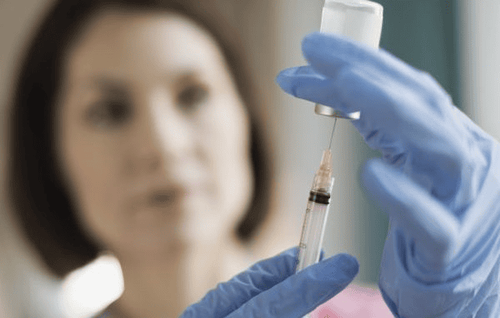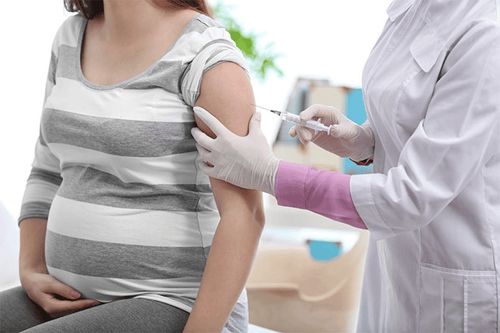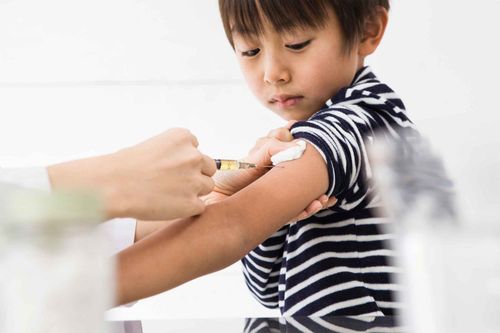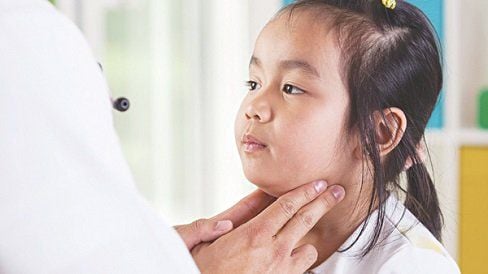This is an automatically translated article.
If you're pregnant or planning to become pregnant, getting vaccinated is an important step in keeping you and your baby healthy. A mother who gets vaccinated before and during pregnancy can also pass antibodies across the placenta to help protect her baby from certain diseases for the first few months after birth.1. Vaccines need to be given before pregnancy
Even before becoming pregnant, make sure you are up to date on all the vaccines that need to be given before, during pregnancy and after delivery. Being well-prepared and following the vaccination schedule will help protect you and your baby from serious illnesses. For example, rubella is a very contagious disease if you get it while you're pregnant. In fact, rubella causes miscarriages or serious birth defects. The best way to fight rubella is with the MMR vaccine (measles mumps rubella vaccine), but if you haven't already, you'll need it before you get pregnant. 1 month after the shot, get a blood test before you get pregnant to make sure you're immune to rubella. Most women get the MMR vaccine as children, but it's a good idea to confirm this with your doctor or have an ongoing assessment of your body's resistance to rubella. If you need to get the rubella vaccine, you should avoid getting pregnant for up to a month after getting the MMR vaccine or ideally until you have had a blood test and been assessed for immunity. .

Tiêm phòng là một bước quan trọng trong việc giữ cho bạn và em bé khỏe mạnh
2. Vaccinations during pregnancy
Whooping cough
Whooping cough is a serious illness for anyone to get, but can be life-threatening for babies. The younger the child, the more likely they are to get whooping cough and need to be treated in the hospital. It can be difficult to tell if your baby has whooping cough because many babies with it have no symptoms of a cough. Instead, the baby may stop breathing and the skin turns bluish.
You should get the whooping cough vaccine between 27 and 36 weeks of pregnancy, preferably early in this period. When you get the whooping cough vaccine during pregnancy, your body makes antibodies to protect you and passes some of these antibodies to your baby before birth. These antibodies will protect your baby for a short time against whooping cough before he or she starts getting the pertussis vaccine.
Flu
Changes in your body like immunity, heart and lungs during pregnancy make you more susceptible to the flu. Having the flu also increases the risk of fetal abnormalities, including early labor and premature birth. The flu shot is the best way to protect the mother and baby for several months after birth from flu-related complications.
Flu season varies from year to year, but the U.S. Centers for Disease Control and Prevention (U.S. CDC) recommends getting a flu shot in late October that will protect you before the flu starts to appear and spread. wide.
Vaccines for travel
If you are pregnant and planning international travel you should speak with your doctor at least 4 to 6 weeks before departure to discuss special precautions or need more vaccinations to prevent disease.
Hepatitis B
Babies born to mothers with hepatitis B have an increased risk of contracting hepatitis B during birth. You need to be tested for hepatitis B and your doctor will advise whether you should get the hepatitis B vaccine.
Additional vaccines
Some women may need another vaccine before, during, or after they become pregnant. For example, if you have a history of chronic liver disease, your doctor may recommend the hepatitis A vaccine. If you work in a laboratory or if you are traveling to a country where meningococcal disease is common. Your doctor may recommend a meningococcal vaccine.

Bệnh viện Đa khoa Quốc tế Vinmec - địa chỉ tiêm phòng vắc-xin uy tín
3. Vaccines after giving birth
Your obstetrician or midwife may suggest that you get some vaccines soon after giving birth. Postpartum vaccinations will help protect you from certain diseases, and you'll pass antibodies to your baby through your breast milk. Postpartum vaccinations are especially important if you did not receive some of the vaccines before or during pregnancy mentioned above.
Vinmec International General Hospital uses a source of high quality vaccines, of clear origin, suitable for the age to be vaccinated, ensuring safety from registration, storage to use. Before vaccination, all customers are screened before vaccination with specialist doctors to ensure the best health when vaccinated. 100% of vaccinated customers are monitored and re-evaluated before leaving. In particular, the post-vaccination monitoring room is fully equipped with emergency facilities; the team of doctors - nurses are trained in anaphylaxis emergency management to ensure timely and correct treatment when an incident occurs.
Please dial HOTLINE for more information or register for an appointment HERE. Download MyVinmec app to make appointments faster and to manage your bookings easily.
Reference source: Cdc.gov












